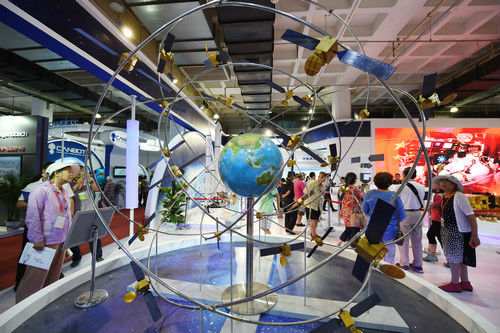China’s Beidou will become a global navigation system: no longer subject to US restrictions

Reference News NetworkReported on August 22Russian media said that the creation of a Sino-Russian joint orbital cluster (consisting of 50-55 satellites) will help use the Beidou Satellite Navigation System (BDS) anywhere in the world. Many Asian countries are now using the Beidou Satellite Navigation System. Andrei Jonin, a member of the Russian Government Expert Council and a corresponding member of the Russian Academy of Sciences, was interviewed by the Satellite Communications Agency and made the above statement on the completion of the compatibility test between the Russian GLONASS satellite navigation system and the Chinese Beidou satellite navigation system.
According to the Russian Satellite Network on August 19, Jonin said that after building a unified satellite cluster, "concerns about possible movements of Americans and Europeans will be completely eliminated." He pointed out that Americans can cut off the global satellite positioning system and do whatever they want with it, but this has no impact on consumers of GLONASS and Beidou services.
According to the report, the study of navigation conditions along the Silk Road Economic Belt by Chinese and Russian experts ended simultaneously. In Russia, the test route was carried out in the promising "Europe-Western China" international transportation corridor, with a total round-trip distance of about 7,000 kilometers. Chinese experts carried out tests along the route of Xi’an-Lanzhou-Urumqi-Khorgos, with a total length of more than 3,200 kilometers.
According to the report, the two sides analyzed the operating conditions of the navigation system, the possible interference of using two navigation systems simultaneously, the coverage of traffic lines, and other parameters required for high-precision navigation. The resulting data will help the Chinese and Russian researchers to draw conclusions about how much more accurate the two systems, Glonass and Beidou, can be when operating together than when operating separately.
Yonin has no doubt that Beidou will become a global satellite navigation system for Chinese military personnel by 2020.
According to the report, China has set this mission, and Jonin said that there is no doubt that China will solve this task. China plans to launch satellites because their current orbital cluster lacks some satellite composition for global coverage. China will have 30 satellites in orbit by 2020, which is enough to solve its own military mission at any time and any place. But the global Beidou will only be used for military purposes, and 30 satellites will not be enough for civilian purposes, because with most consumers living in cities, 50 to 55 satellites are required. That is to say, the Sino-Russian joint satellite cluster is sufficient for them. In this scenario, Beidou becomes a global satellite navigation system, like GPS and Glonass. You can call this orbital cluster whatever you want – the China-Russia orbital cluster, the SCO orbital cluster, the BRICS orbital cluster… The main thing is that it will be independent, so after the construction is completed, all countries that want to use this orbital cluster can no longer worry about any movements of the Americans and Europeans.
Experts explain that in the event of a conflict between China, Russia, China, Russia, and the United States, all consumers of GLONASS and Beidou navigation services will not be harmed in any way. This is important for all countries concerned about US sanctions, including those related to the use of GPS.
During the test, the possibility of providing high-precision navigation services by the future joint system of Glonass and Beidou was analyzed, that is, the coordinate position was determined within the accuracy of tens of centimeters or even a few centimeters, rather than within the accuracy of 10 meters to 15 meters. Yonin pointed out that, indeed, for current car freight or railway transportation, this problem is not so urgent at present.
For the future mode of transportation, it is also called "smart driving" or "partially driverless", and so-called "caravan driving", which means that multiple trucks form a kind of serpentine formation, and the driver of the first car guides the entire caravan. All this is necessary. What is needed here is high-precision navigation. So, it is very good to have started to study this problem for the future.
According to the report, Russian experts estimate that, like the entire project, the test results will help ensure high-precision satellite navigation services for Chinese and Russian consumers in the coming decades. The Sino-Russian joint navigation system is a strategic project. It is no accident that the above cooperation direction is regarded by both sides as the most promising direction in the high-tech field.